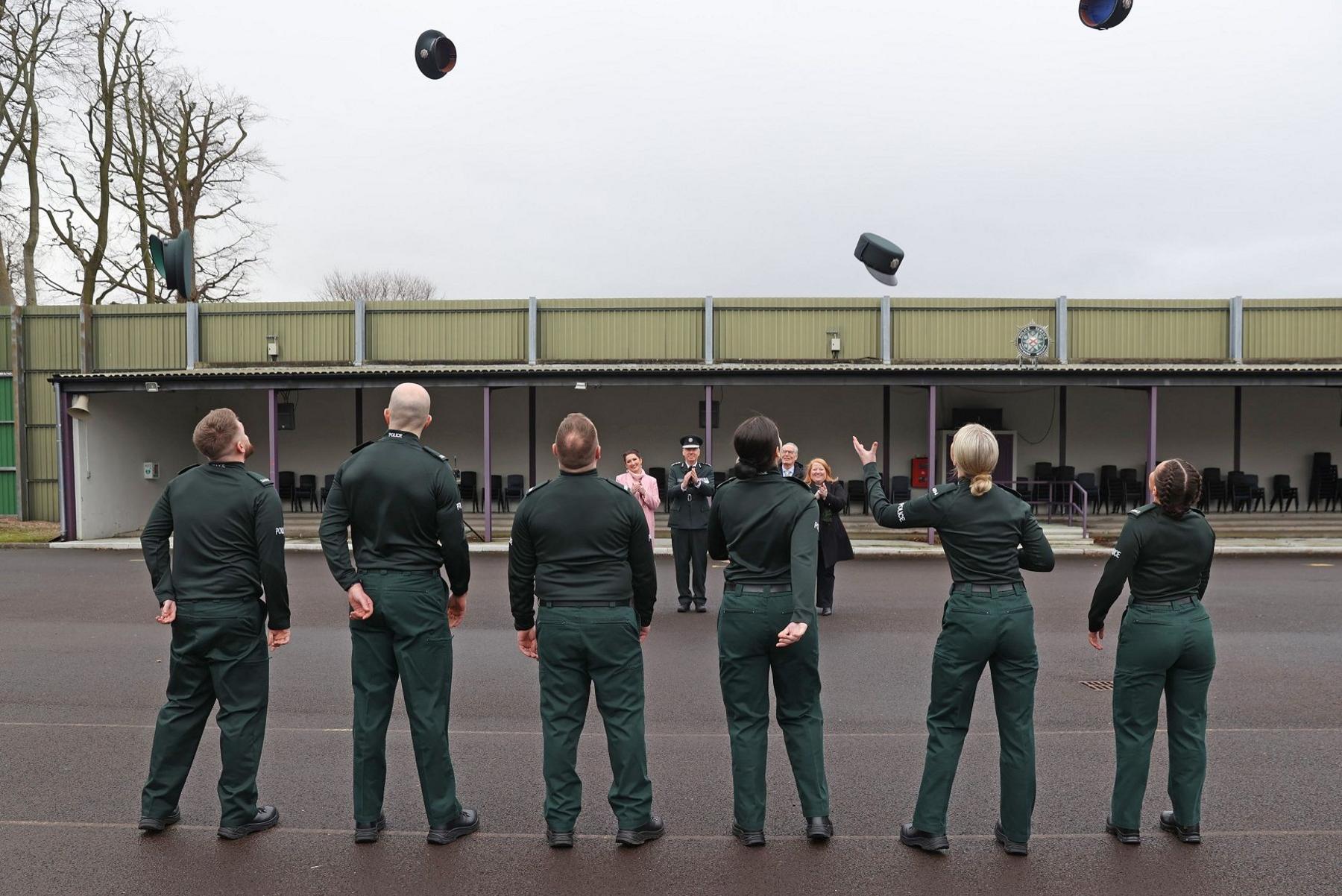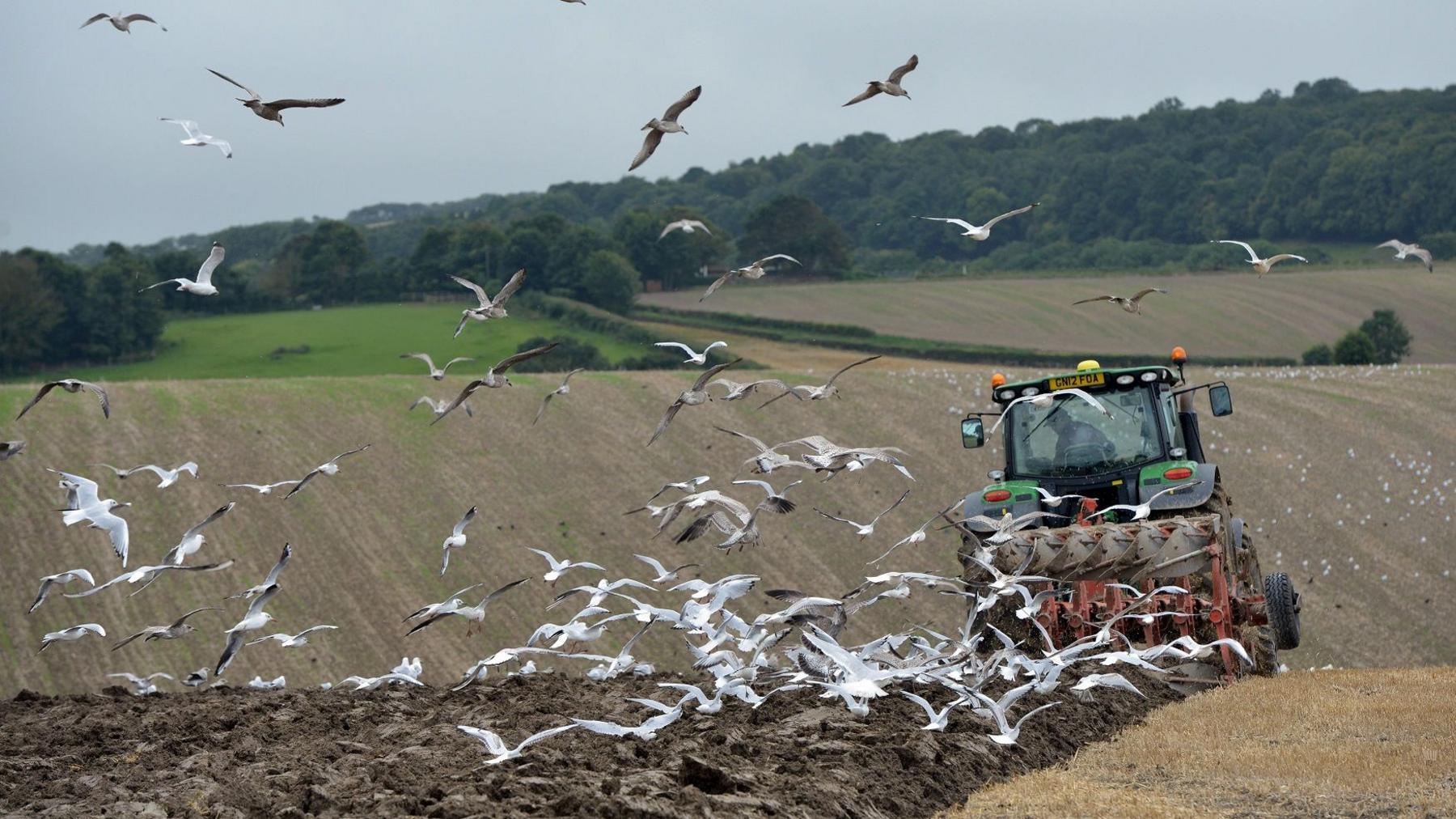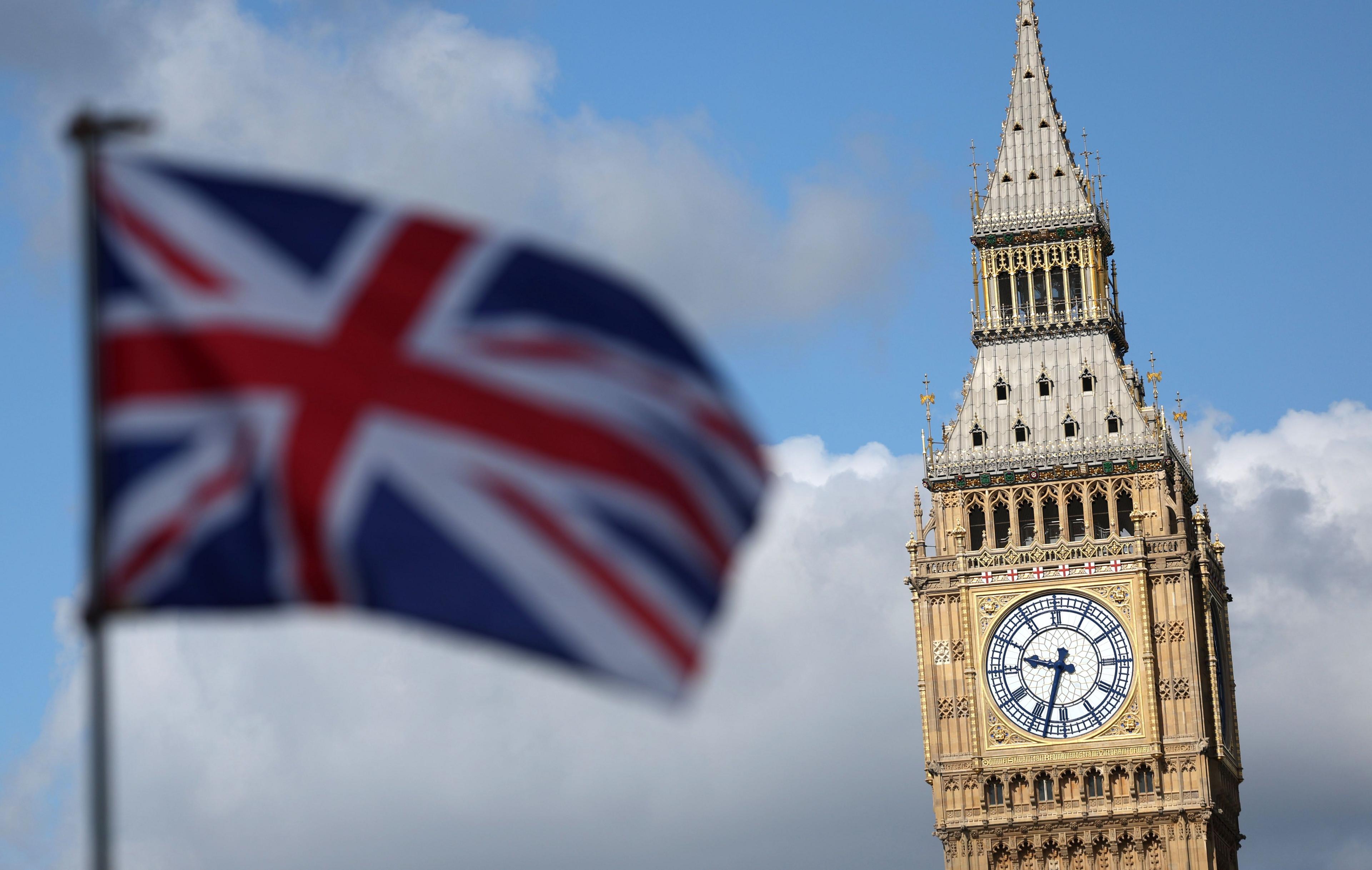UUP manifesto: Key policies analysed

- Published
The Ulster Unionist Party (UUP) has launched its 2024 election manifesto.
The dominant unionist party in Northern Ireland for decades, it has seen its fortunes wane at Westminster and Stormont since the early 2000s.
In 2010 it failed to win any seats at Westminster for the first time since Northern Ireland was created.
In 2015 the party won two, but both MPs were defeated in 2017 and no candidates were successful in 2019.
This time round the party is standing in all of Northern Ireland's 18 constituencies bar one - Belfast North.
Health strategy front and centre

As you would expect, the UUP's manifesto about health is full of detail and pledges.
Having a former health minister in its candidate line-up means waiting times, recruitment and budget cuts are all at the forefront.
The manifesto raises the importance of staffing and how necessary they are to make health and social care work.
It pledges to maintain pay parity - a commitment that's proved challenging here for decades.
At the heart of achieving pay parity are stable government, funding and recurrent budgets.
Instability in all of the above has had an adverse impact on health workers and the service itself.
In black and white it reads a perfect pledge, but achieving it in Northern Ireland, as the past has proven, is difficult.
The manifesto quotes how the Department of Health has most recently successfully tackled the costly overuse of agency staff.
However, it's a vicious circle - for some, hiring agency staff is the only option left to open wards when the health and social care bank of staff is low.
The manifesto on health is a dose of reality and wishing for better.
More money and officers for policing

The party has been consistently vociferous on police numbers, which have been eroded by a significant squeeze on the PSNI’s budget delivered via the Department of Justice.
The manifesto restates its backing for 7,500 officers – about 1,100 more than the service currently has.
That number has its roots in Lord Patten’s 1999 policing recommendations and endorsed by the governments and parties in the New Decade New Approach deal in 2020.
But the core problem is money, or lack of, together with the Northern Ireland Executive collectively prioritising other areas.
The party suggests accelerating officer recruitment over the next three years.
It wants 500 on top of those hired to replace retirees, who normally number about 300 per year.
That scenario would take the PSNI to about 7,000 officers by 2027-28.
On legacy, the party repeats its opposition to what was in the Stormont House Agreement, which Labour has said it will revisit once it ditches the Legacy Act.
Long-term strategy for farmers

The Ulster Unionists have pledged to “maintain and enhance direct payments to farmers”, acknowledging the agri-food sector’s role in the Northern Ireland economy.
Those payments generally represent the bulk of farmers’ earnings.
The party also says it’ll “work in partnership with farmers to develop a comprehensive, long-term strategy for the future of Northern Ireland agriculture”.
A Future Farm Support and Development package is currently being implemented by the Department of Agriculture, Environment and Rural Affairs (DAERA).
They’ve also committed to “cut bureaucracy... to reduce the administrative burden on farmers”.
Paperwork has long been a bugbear of the industry, but when a sector has to be as heavily regulated as the one that produces our food, it remains to be seen how straightforward reducing that load could be.
One element that will be welcome is increasing funding focused on innovation, productivity and sustainability.
Agriculture has a growing share of emissions in Northern Ireland as other sectors reduce.
Farmers are keen for any support they can get to help them tackle that.
The manifesto also has commitments around the environment, including tackling the problems of Lough Neagh and planting more trees.
Reducing corporation tax

Corporation tax is the tax which companies pay on their profits. The main rate in the UK is set at 25%.
In 2015 the UK Parliament passed a law giving Stormont power over the corporation tax rate in Northern Ireland.
The plan was that Stormont would set a rate of 12.5% to match the Irish Republic.
However that power has never been used.
The main problem is that if a tax is devolved and then cut, less money will initially be sent to the UK Treasury.
So in turn the Treasury will cut the block grant - the money it sends to Northern Ireland for public services.
Stormont and the Treasury were never able to agree how big that cut should be and how it should be implemented.
The UUP manifesto does not go into detail about how to solve that problem but says that the reduction to 15% should happen "gradually".
Defend Northern Ireland's place in the union

This is always a given for any unionist party - the clue is in the name.
However the three main unionist parties differ tactically on how to achieve this aim.
As recently as 1997 the Ulster Unionists won 10 of Northern Ireland’s 18 seats.
They go into this election with none, although with a realistic chance of winning at least one.
The manifesto speaks of trying to secure seats in Westminster “to champion Northern Ireland’s concerns and aspirations”.
Although with at best a minimal presence the question is what can they, or any other unionist party, achieve.
